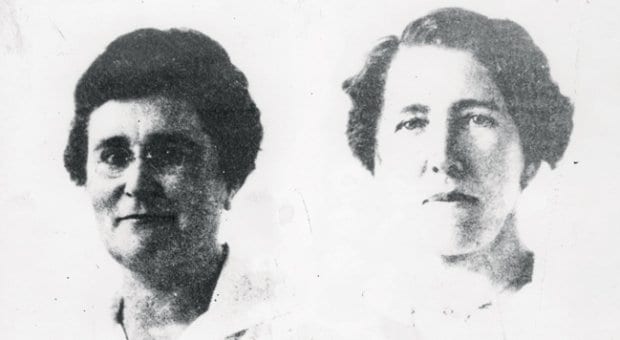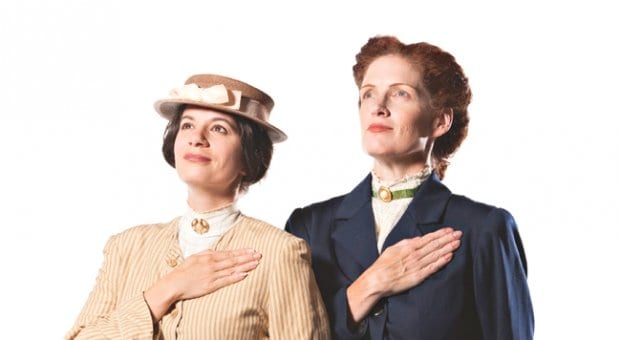
Constable Minnie Millar could have been a lesbian, playwright Sally Stubbs speculates. Credit: Vancouver Police Museum
One hundred years ago the Vancouver Police Department (VPD) made Canadian history by hiring the first two female police officers in the country.
Now, along with a new exhibit at the Vancouver Police Museum that chronicles the evolution of female roles in the VPD, the Firehall Arts Centre presents Kid Gloves, a fictionalized account of those 1912 trailblazers, constables Lurancy Harris and Minnie Millar.
“There is so much history, so much depth and so much sadness and beauty here,” says playwright Sally Stubbs from the Firehall in the Downtown Eastside, the epicentre of Vancouver’s early days and the setting for Kid Gloves.
Firehall artistic producer Donna Spencer, who will direct Kid Gloves, was equally captivated by the story of Harris and Millar, who were hired to deal with women’s and youth issues.
“I was fascinated by these two women who were strong at a time when in Canada women didn’t even have the vote,” says Spencer, who laughs at the idea of the two constables dressed in full-length skirts running through the Downtown Eastside carrying their badges inside small clutch purses.
Vancouver Police Museum curator Kristin Fairbairn-Hardie says any vision of the women pulling pistols from their purses is pure fantasy since women weren’t allowed to carry guns in BC until 1973.
“Ironically, a lot of these women were actually good shots, and while they had to learn to shoot for the job they were not actually permitted to carry a gun,” Fairbairn-Hardie explains.
Combining what Stubbs has been able to glean from museum archives and her own imagination, Kid Gloves reads like an episode of CSI: 1912 as the duo goes inside Vancouver’s early bawdyhouses against the backdrop of a sometimes bureaucratic and often chauvinistic profession.
Along with an exploration of the challenges Harris and Millar faced in a misogynistic era, the playwright has embedded an unrequited love story between one of the newly minted cops and working girl Mai Ji. While the lesbian storyline is speculative, since so little is known about the real Millar, Stubbs sees it as a natural fit.
“Unlike Lurancy, who we know was married, there is no indication that Millar had a relationship with a man. She was in a protective role as a police woman, and while she may have originally wanted to save Mai Ji, here was this mysterious, beautiful and feisty woman, and Minnie just falls for her,” Stubbs says.
In addition to small clues from what is known about Millar, Stubbs draws from her own family history, recounting the story of her grandfather’s sister, who lived for years with another woman.
“It wasn’t until many years later that my uncles finally figured out what was actually going on,” Stubbs says, hinting at the same-sex relationship. “I think it was an interesting time period where you just didn’t talk about these types of things.”
Despite her assumption that Millar may have been a lesbian, a sexual connection between her and Mai Ji is never realized in the play, something the playwright says she did on purpose.
“The love story between the two couldn’t be the focus,” she says. “I thought it was a rich addition to the narrative, but the focus needed to be about these women making their way in a world run by men.”

 Why you can trust Xtra
Why you can trust Xtra


